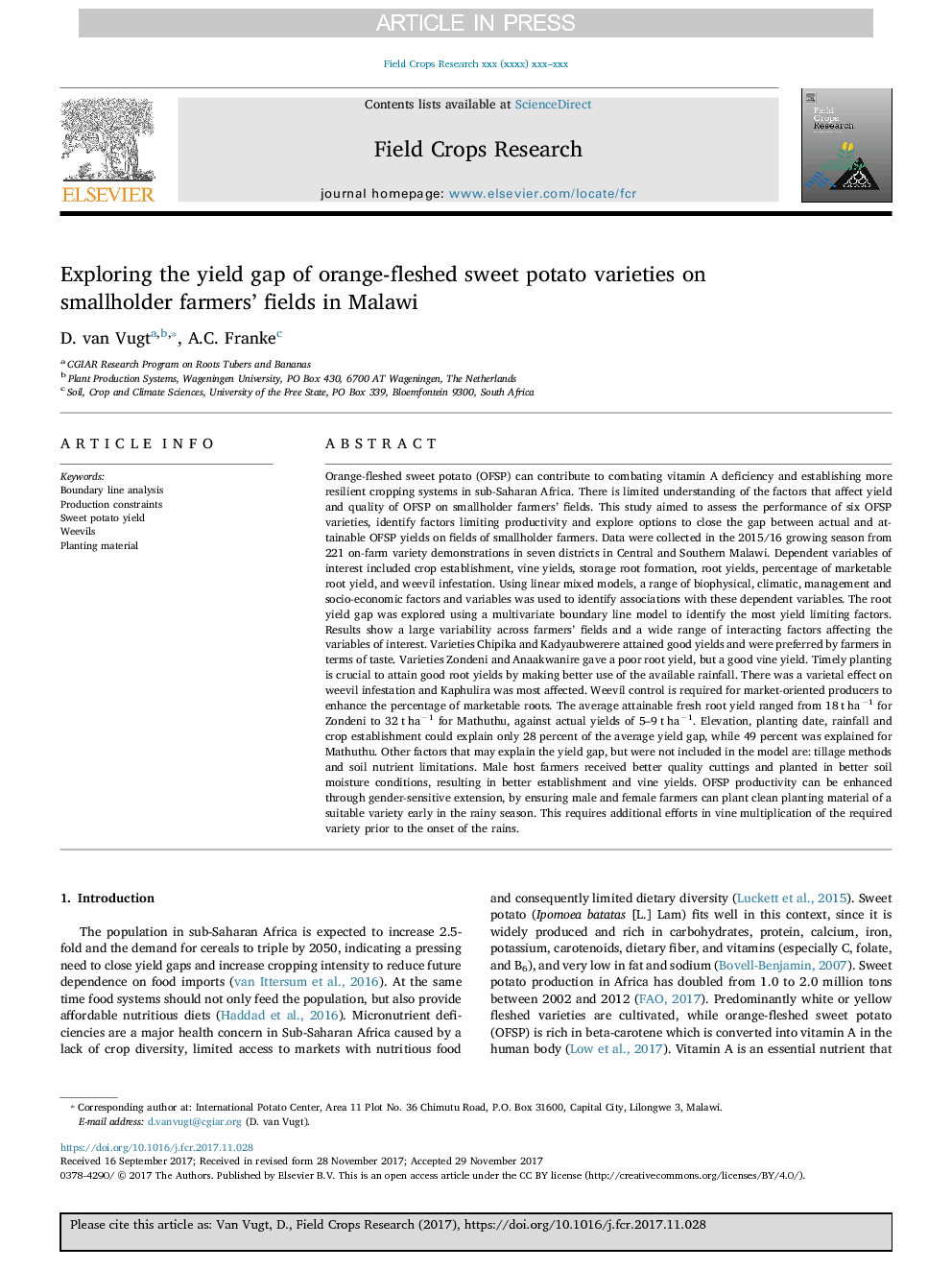ترجمه فارسی عنوان مقاله
بررسی شکاف عملکرد ارقام سیب زمینی شیرین با رنگ نارنجی در مزرعه های کوچک مالدار در مالاوی
عنوان انگلیسی
Exploring the yield gap of orange-fleshed sweet potato varieties on smallholder farmers fields in Malawi
| کد مقاله | سال انتشار | تعداد صفحات مقاله انگلیسی |
|---|---|---|
| 102856 | 2018 | 12 صفحه PDF |
منبع

Publisher : Elsevier - Science Direct (الزویر - ساینس دایرکت)
Journal : Field Crops Research, Volume 221, 15 May 2018, Pages 245-256
ترجمه کلمات کلیدی
تجزیه و تحلیل خط مرزی، محدودیت تولید، عملکرد سیب زمینی شیرین، حشرات، کاشت مواد،
کلمات کلیدی انگلیسی
Boundary line analysis; Production constraints; Sweet potato yield; Weevils; Planting material;

